AARP Hearing Center


9
“What initially brought you to town, sir?”
“A report of a rare sighting of Turdus merula,” Zachariah Boyd said, proudly puffing out his chest to show off his Bird Nerd T-shirt. “I’m the president of the Gulf Coast Avian Society. We welcome new members.”
The reporter carefully wrote down the name of the group and its website, noting it would make a good inset for his article. “How long do you plan to stay in Wicklow?”
Mr. Boyd scratched his chin, which was covered in a neatly clipped white beard. “Don’t rightly know. I came for the blackbirds … but I’m staying for the pie.”
Natalie
I hadn’t stuck around to witness Mama gloating her way through Ollie’s swimming lesson. I’d headed straight out the moment I’d handed my cheerful daughter over to my also-cheerful mother for the day.
The town was jumping. There was a group of people walking around, hanging flyers about the Fourth of July carnival, which was still more than a month away. I recognized them as being from Mama’s Refresh group and went out of my way to avoid contact. The last thing I wanted was to run into Coralee Dabadie and have to make small talk about Stacia giving Ollie swimming lessons, something I didn’t like to think about, never mind discuss with a woman I hadn’t spoken to in years.
Cars were backed up along Mountain Laurel Lane and many of the diagonal parking spots were taken. There was a vibrant hum in the air that hadn’t been here yesterday, and an even bigger crowd in front of the Blackbird Café, where I was headed. I’d eat my piece of pie, check around town to see if anyone was hiring, then head home.
Staying behind to watch Ollie’s lesson would’ve been sheer torture. Taking a deep breath, I reminded myself that she was in good hands. Mama loved Ollie and wouldn’t let harm come to her.
Not willingly, anyway.
But accidents happened.
No. I refused to go there. Between Mama and Stacia, Ollie was not going to drown.
She was not going to drown.
I struggled with the need to race back to the pool, grab my daughter, and never let go. Suddenly dizzy, I latched on to a light post for balance as Matt’s bloated, ghostly white face floated in and out of focus, then came sharply into view, in the finest possible detail, the scar on his cheek almost translucent. His blue eyes opaque. His skin puffy.
I’d barely recognized him enough to identify his body, freshly pulled from Lake Martin, where he’d been missing for two days. I closed my eyes against the memory, clenched my jaw, and willed myself not to throw up right here in the center of town, all over the purple and pink petunias along the sidewalk.
I was still clinging to the pole when I felt something wet and slimy on my hand and heard a throaty whimper. Alarmed, my eyes flew open. River, the Sheltie mix, was at my feet, staring upward. His wet nose nudged my arm and he gave my hand another lick.
“He has a knack for finding people in distress,” the mountain man, Cam Kolbaugh, said. He ducked his head to look me in the eye. “You okay?”
“Oh, fine.” I coughed, trying to clear the lingering anxiety from my throat. I patted the light post. “Just checking to make sure this thing’s sturdy. It is.”
“Good to know. You can probably let it go, then.”
My head swam. “I’m thinking I should keep on making sure it’s not going anywhere for a bit longer. Another minute or so should do the trick.”
Cam knelt down, pulled a backpack from his shoulder, and riffled around inside it. He brought forth a canteen and held it out. “Water. Full. None of my cooties on it yet.”
“I’m not thirsty. Thanks, though.”
He sat back on his haunches, then suddenly pulled out his camera and took a shot of me.
“Why’d you do that?”
He studied the image for a moment, a deep frown causing his eyes to narrow. He stood and showed me the camera’s screen. “You’ve lost all coloring. I’ve never seen someone go so white in all my life.”
“Count yourself lucky.” I stared at the picture of myself and couldn’t argue that I looked ghostly. And ghastly. And that I was almost the same color Matt had been on the shore of the lake. Just like that, his face was back, staring blankly at me. I wobbled.
Cam grabbed my arm. “Hey, now. Come on. I’ve got you.”
He led me to a nearby bench, sat me down. River set his chin on my knee, not taking his doleful eyes off me. When I started shivering uncontrollably, Cam inched closer, then placed his right arm around my shoulders, pulling me close, anchoring me to him, as if he did it all the time. He took his other hand and reached in front of me, gathering up my left hand to hold it tightly in his enormous callused palm. The contact should have felt like a confining invasion of my personal space—he was practically a stranger, after all. A big, overpowering stranger. Instead his heat and his strength seeped into me like a soothing balm.
I focused on breathing. In, out. One breath at a time, just like the therapist had taught me when I’d first started having panic attacks. It took a good few minutes, but the shaking stopped. The nausea was still there in the pit of my stomach, but under control. My head throbbed but was no longer fuzzy.
Cam let go of my hand and rubbed River’s ears. “How’s the bench doing? Sturdy as the lamppost?”
I managed a weak smile. “I don’t think it’s in danger of collapsing anytime soon.”
He caught my eye. “Good to know.”
“Thank you for watching out for me,” I said.
“You’re welcome.”
“Oh, I was talking to River.”
Cam laughed, long and hard. “I should’ve known.” As casually as he’d draped it around me, he removed his arm. He fussed with his backpack and his camera.
“And thank you, too.” I tried to explain what had just happened, without going into the gory details. “I get …”
“You don’t have to go explaining anything to me. Traumatic events leave emotional wounds that’re hard to heal. Everyone has their own way of getting through it.” He stood up, held out his hand.
I slipped my hand into his and looked up. “What’s your way?” I asked, because instinctively I knew he spoke from experience.
“I hide in the mountains.” “I like your way better.”
“Took me a long time to find a method that works. You’ll find yours. Now, where’re you off to? I’ll walk with you.”
I wanted to argue that I’d be fine on my own, but truth was I liked his company. He had a calm strength about him I envied. “To the Blackbird Café.”
We started off in that direction. He said, “It’s a hot spot today. Loads of people showing up because of the blackbirds.”
“I suppose I’m going there because of the blackbirds, too.”
“But you know they won’t be out until midnight. They’re a sight, too, let me tell you. I’ve never seen anything like it in my life. I got chill bumps when they appeared, practically out of nowhere.”
River walked a step ahead of us, his tail wagging as he sniffed people who passed by. I wished Ollie were here—she’d have loved this time with the dog. “Oh, I’m not going to see the blackbirds. I’m going because I need their help. To heal.”
He glanced at me, confusion filling his hazel eyes. “Their help?”
“You haven’t heard about the pie, then.”
“The pie?”
“The blackbird pie? It’s … well, it’s something special. And I’m counting on it to help me get rid of a ghost.”
Anna Kate
My quiet, peaceful morning hadn’t lasted long. By nine thirty, the Blackbird Café was jam-packed. Every table was full and there was a line out the door and down the block. We couldn’t cook or serve fast enough, and at one point I thought we might run out of food. I couldn’t even offer up pie, as I’d handed it out among the early-birders before the café opened.
I dropped a plate of home fries at a table, then went around the room to refill coffee cups. Other than Mr. Lazenby, Pebbles, and Faylene, I didn’t recognize the rest of people in the café, but by their discussions I’d picked up that they were only in town to see the blackbirds.
Mr. Lazenby had been here for close to three hours now, and each time I passed by him to refill his mug or drop off a plate, he grumbled about mulberry stems. You’d think I’d asked him to destem a whole tree instead of a small bunch of berries.
I’d talked to Bow and Jena about the mulberries earlier, but they didn’t know too much other than that Zee looked forward to harvesting them each year. They had never seen her preserve, process, or freeze them, or do anything other than gather them when ripe. She never made mulberry pies, either, which I thought was strange.
“Order up!” Bow thumped the countertop.
I hurried into the kitchen, dropped off the coffee pot, and picked up two plates laden with johnnycakes, a type of cornmeal pancake, according to Bow, topped with brown butter apples, the day’s special. “Thanks, Bow.”
“You holding up okay out there?” he asked.
Surprisingly, I was. Maybe because there were more birders than locals, and I wasn’t the focus of everyone’s undivided attention. I’d fielded only a few questions about my life, so word must be getting around town on its own. And I’d dropped only two plates and one mug. “Better today than yesterday.”
Jena bit back a yawn as she set another sheet of biscuits in the oven—she’d been yawning all morning, saying she’d woken up earlier than usual to tend to a friend. It didn’t help that she’d been pulling double duty this morning—helping in the kitchen and the dining room. “And tomorrow will be better than today, just you wait and see. You fit right in here.”
I didn’t know about that, since I’d had no idea what a johnnycake was, but it was nice not to feel like a complete outsider.
As I delivered the plates, I spotted Natalie outside in the crowd. She waved when she saw me, and I pointed to the back door. She ducked out of line and disappeared around the side of the café. I dreaded telling her that there would be no pie today.
“Was that …?” Faylene stood up, then sat back down. “I’ll be. It is Natalie.” She turned to me. “You know Natalie?”
A hush fell over the locals, but the chatter from the birders kept steady, covering the sudden awkwardness. “I met her yesterday. At the park.”
I glanced at Mr. Lazenby, and even he seemed on the edge of his seat. “What did she have to say?” he asked.
“Yes,” Pebbles said, leaning in. “Do tell.”
I wiped my hands on my hip apron. “Well, not all that much. She asked me to save her a piece of pie.”
“Pie? Oh.” Faylene pressed her hand to her heart. “The dear, dear thing.” She turned to the table, including all the strangers, and said, “Natalie’s husband passed away one year, seven months, and four days ago, thereabouts. A tragic, tragic accident. Drowned in Lake Martin, and search and rescue didn’t find his body for two whole days.”
A sad murmur echoed down the table, and my eyes stung with tears, though I hadn’t even known the man. Then I realized that I wasn’t hurting for him—I was hurting for Natalie. And little Ollie. Especially Ollie. I knew what it was like to grow up without a father.
Mr. Lazenby straightened his green-striped bow tie. “I’d forgotten about that.”
Pebbles said, “I didn’t know Natalie was back in town. How long is she planning on staying? How old is her girl now?”
“Just under two, and I’m not sure,” Faylene said. “Unless Natalie’s relationship with Seelie has changed, I’m guessing they won’t be here long. Like oil and water, those two, especially when Natalie was a teenager.”
“She’s going to be mad about the pie,” Mr. Lazenby said, as if his brain had only now caught up to that part of what I’d said. Then his eyes brightened. “Hold up now, Miss Anna Kate. You said the pie would be fixed tomorrow—will you put aside a piece for me? I’ll pay extra.”
Behind him, Pebbles shook her head so vigorously I thought for sure she was going to end up with whiplash—she wasn’t the least bit sorry he hadn’t been getting his heavenly messages from his dearly departed wife.
“Sorry, Mr. Lazenby,” I said, not feeling too badly. I knew he’d be waiting at the door at dawn—there would be plenty of pie for him to choose from. “First come, first served. Café rules.”
Indignantly, he sputtered, “But you were going to save a piece for Miss Natalie!”
“Family members are exempt from that rule,” I said, then walked away. But not before I heard a squeal out of Faylene.
“Family? Did you hear that! Anna Kate is a Linden. I knew it. I just knew it.”
“We all knew it,” Mr. Lazenby said grumpily.
I smiled as I strode to the back door to greet Natalie—she was coming up the steps of the deck.
“Come on in,” I said. “Excuse the madness. It’s a little busy.”
“A little?” Natalie said. “It’s a nuthouse.”
Bow said, “Who’re you calling nutty?”
“Hi, Bow.” She gave him a big smile.



























































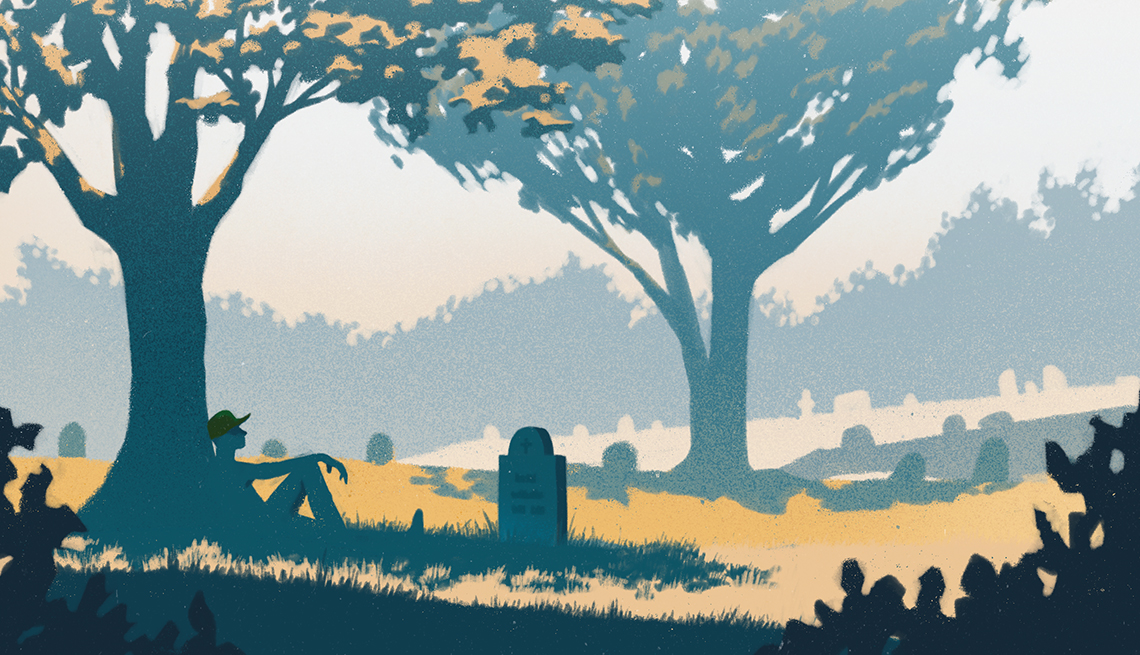
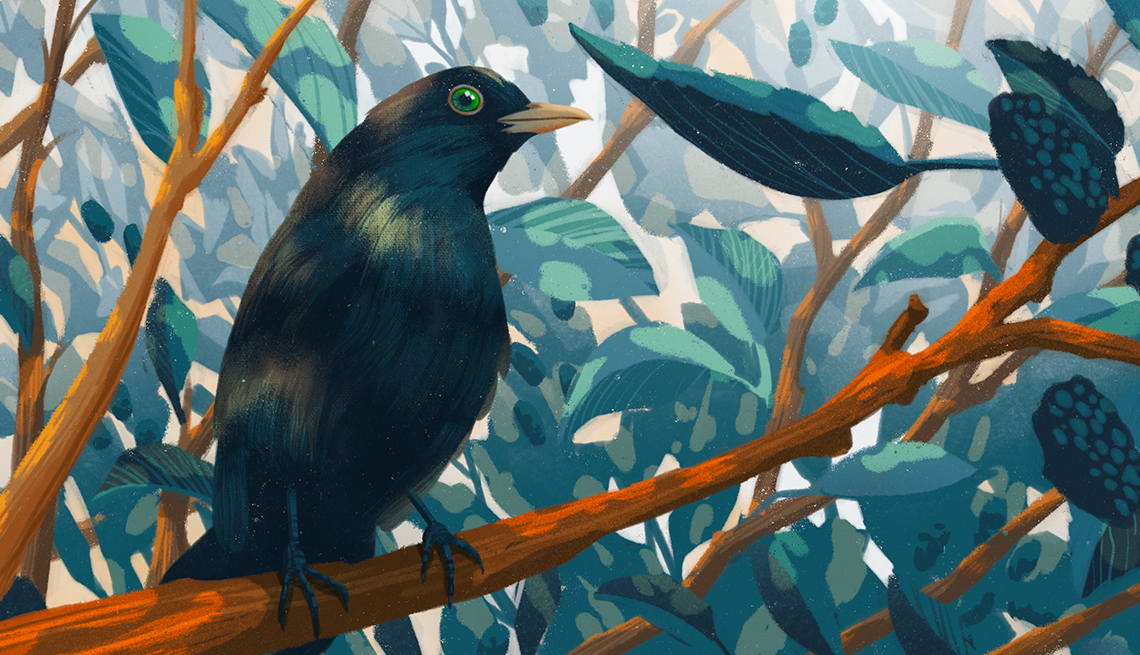
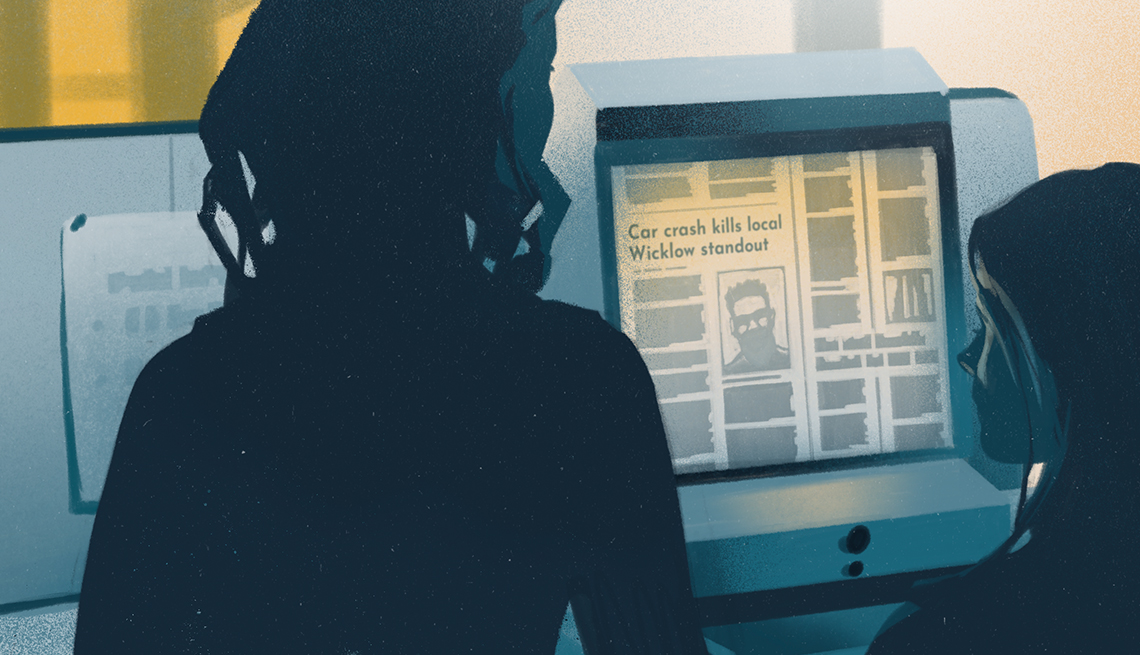
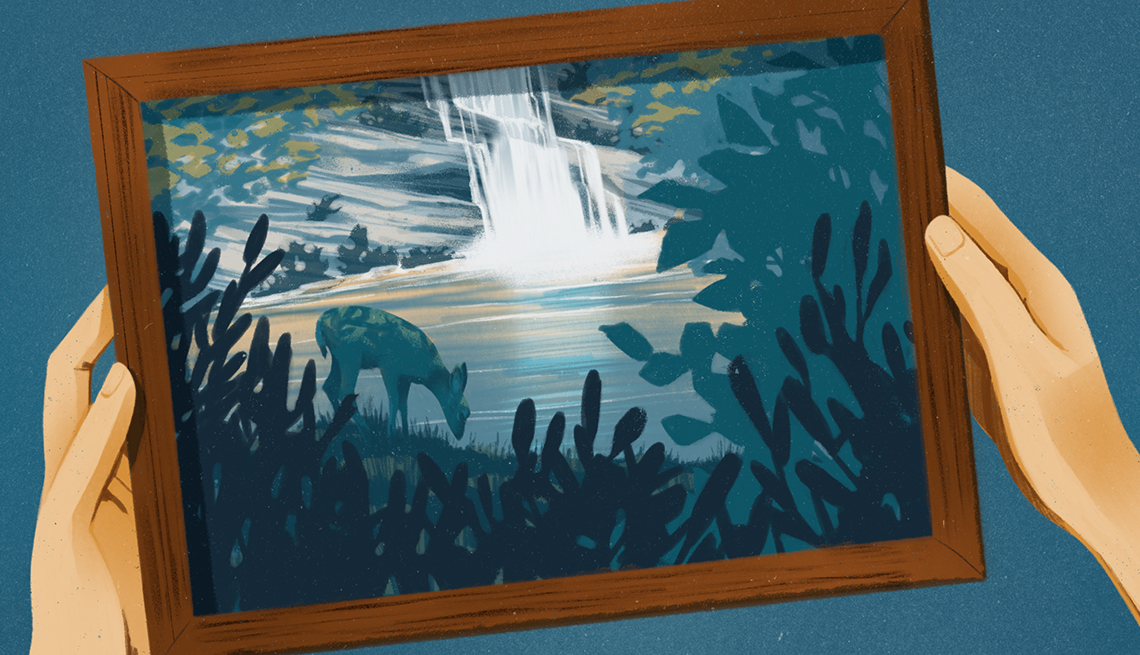
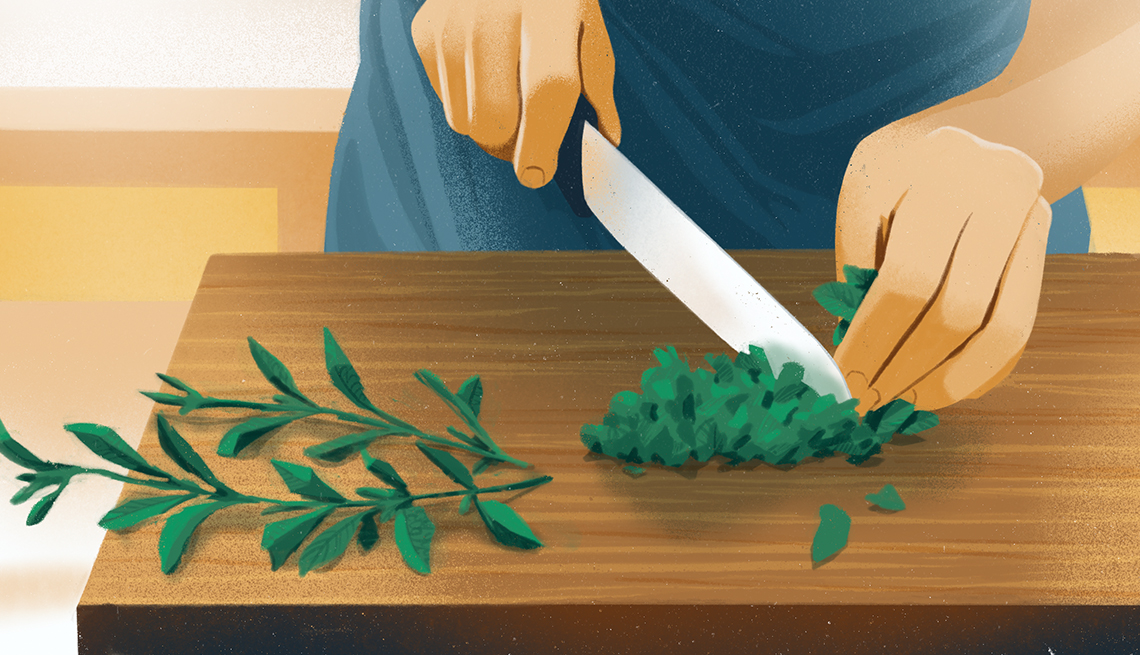
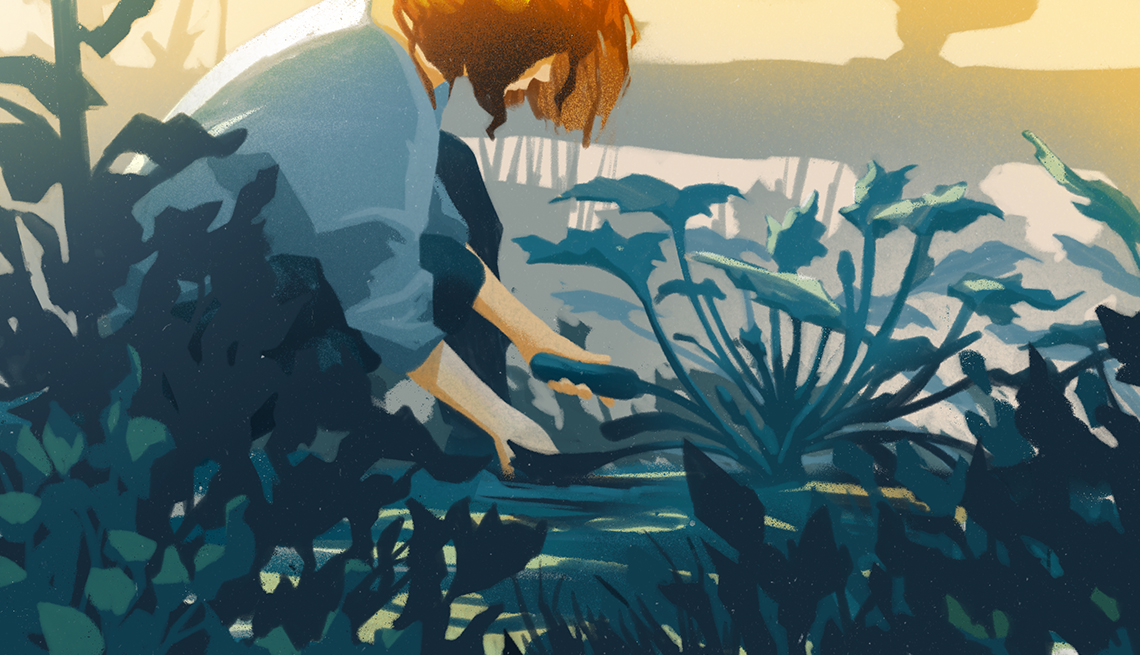
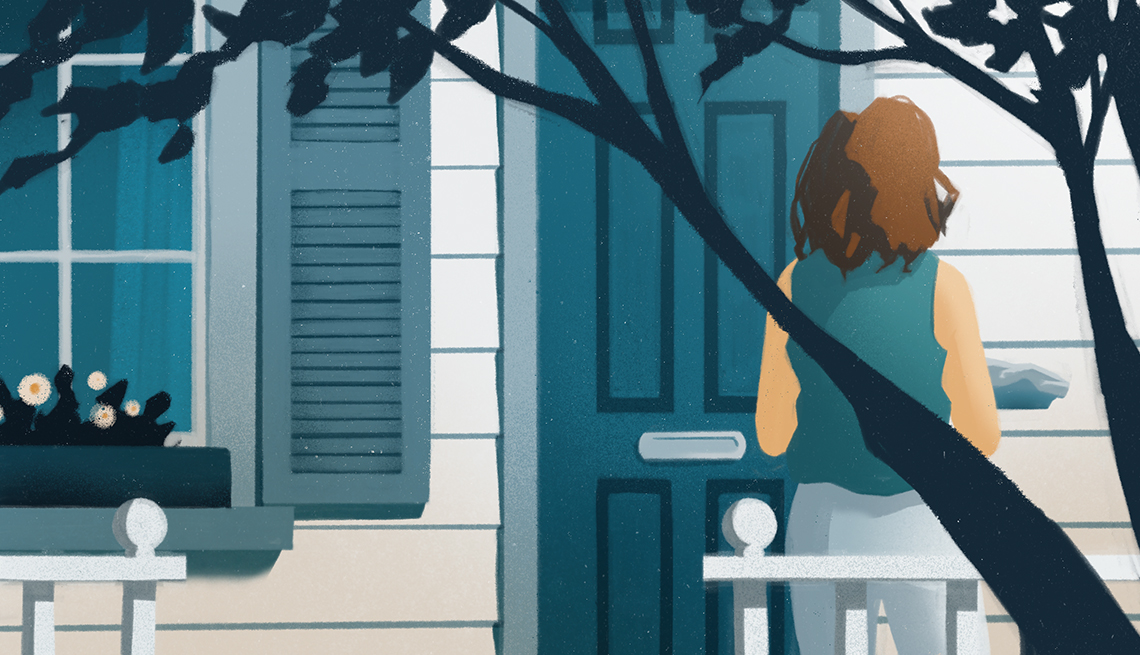
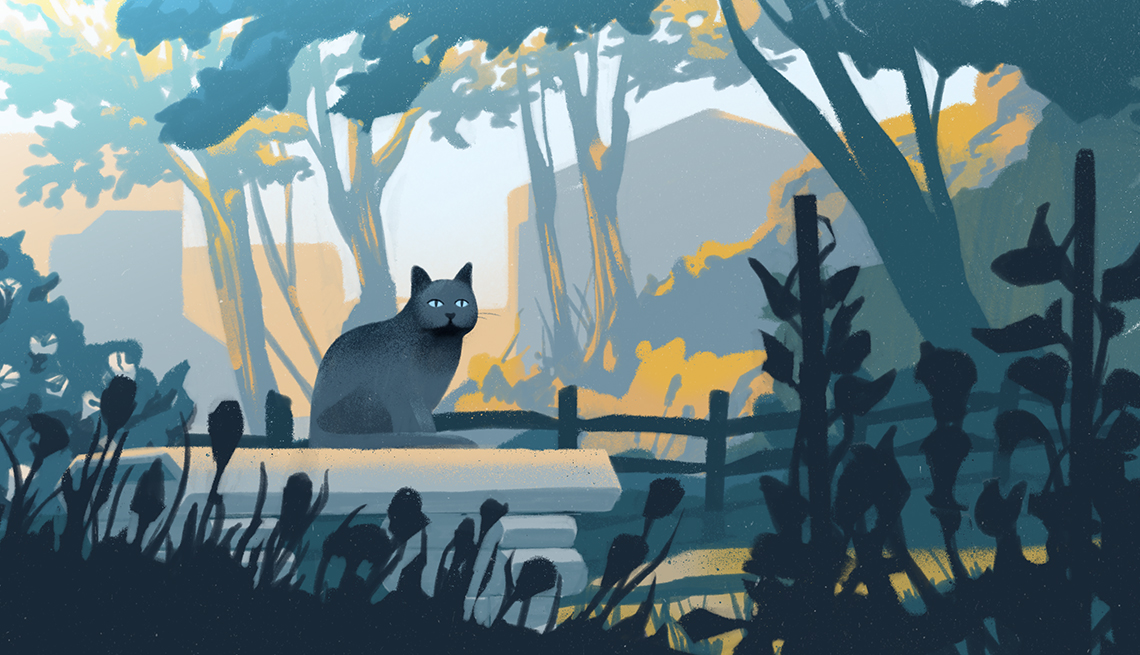
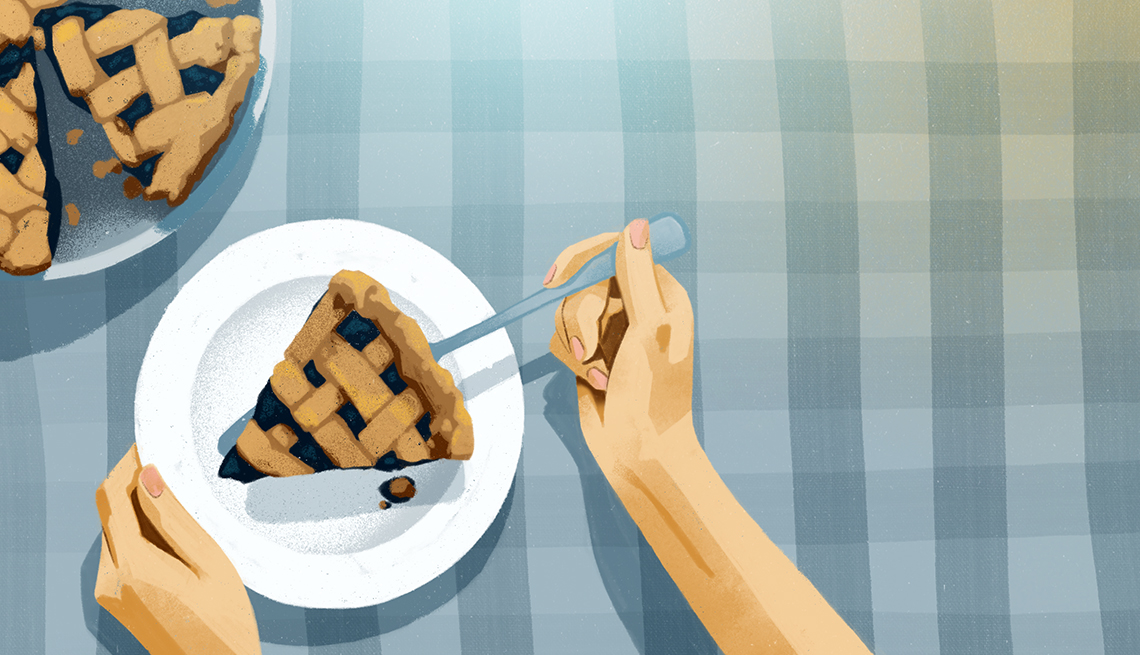
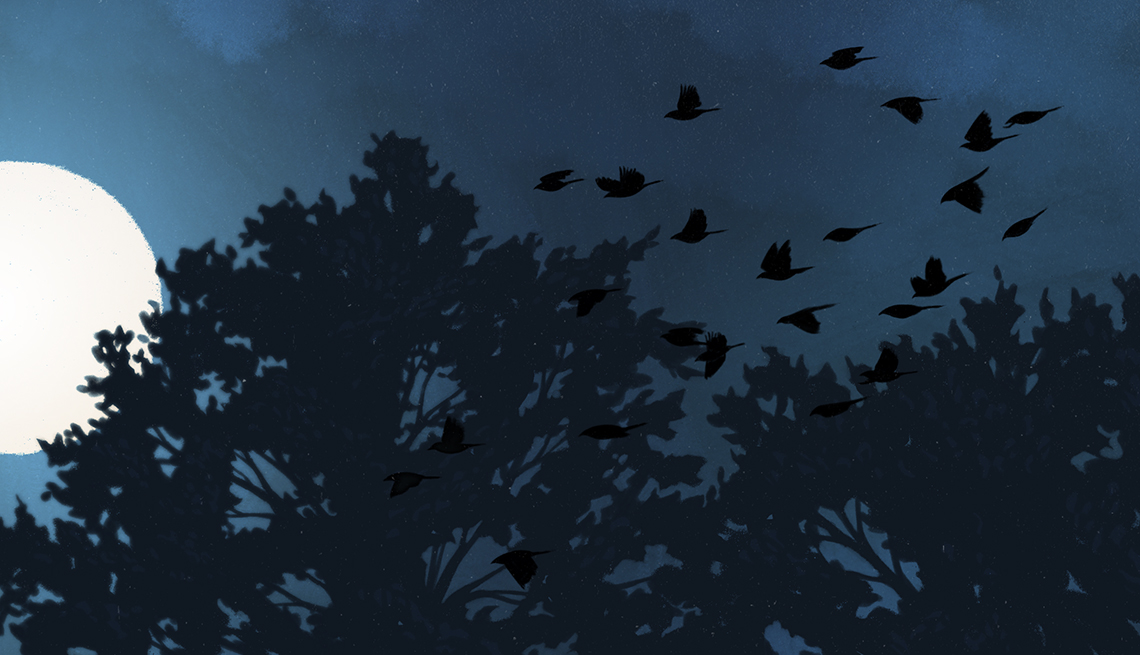
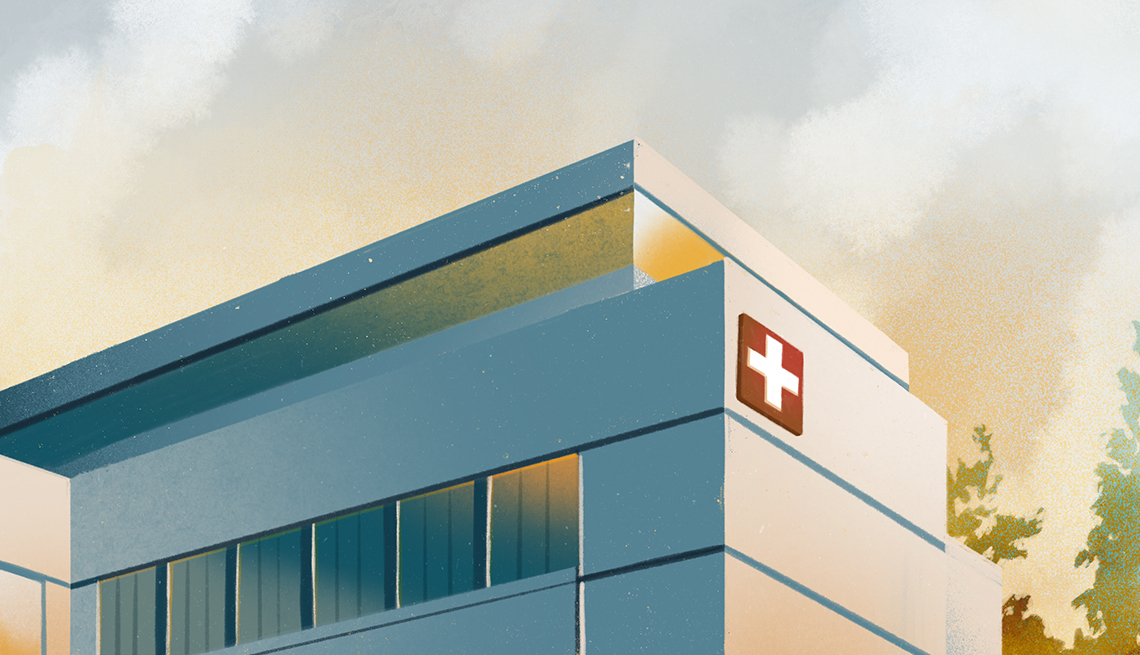
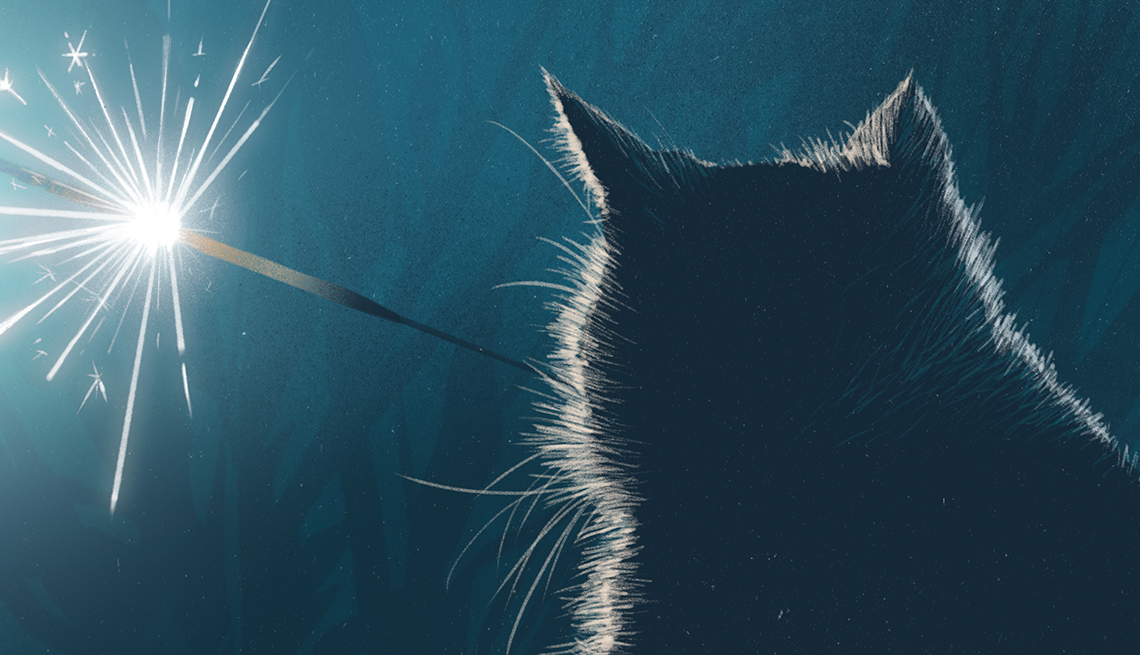
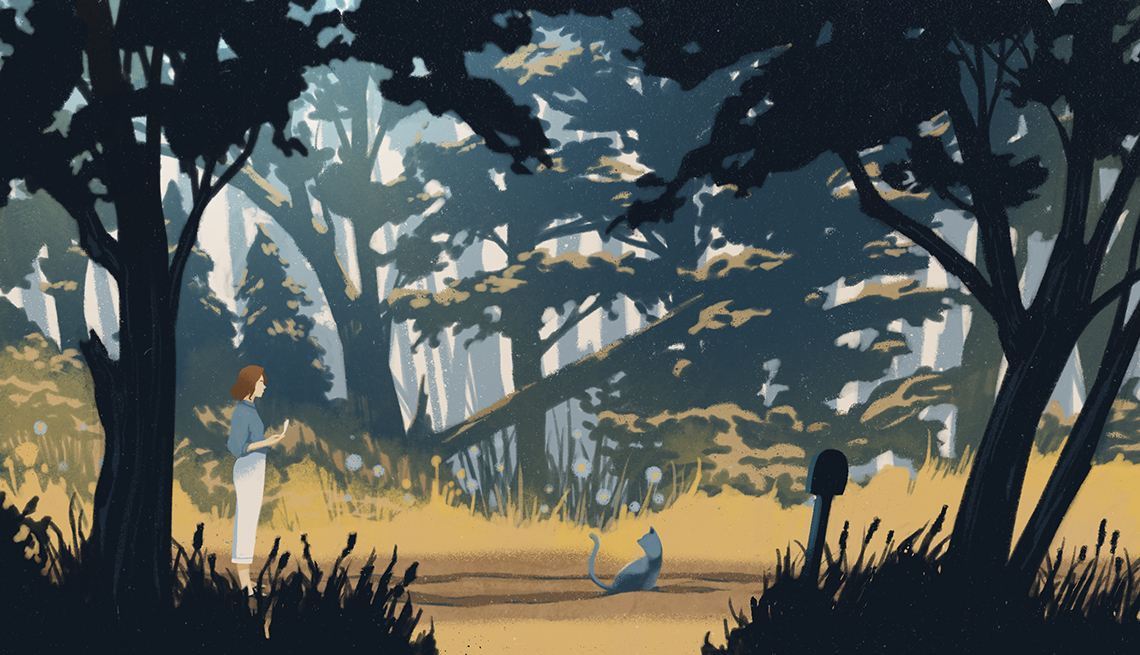
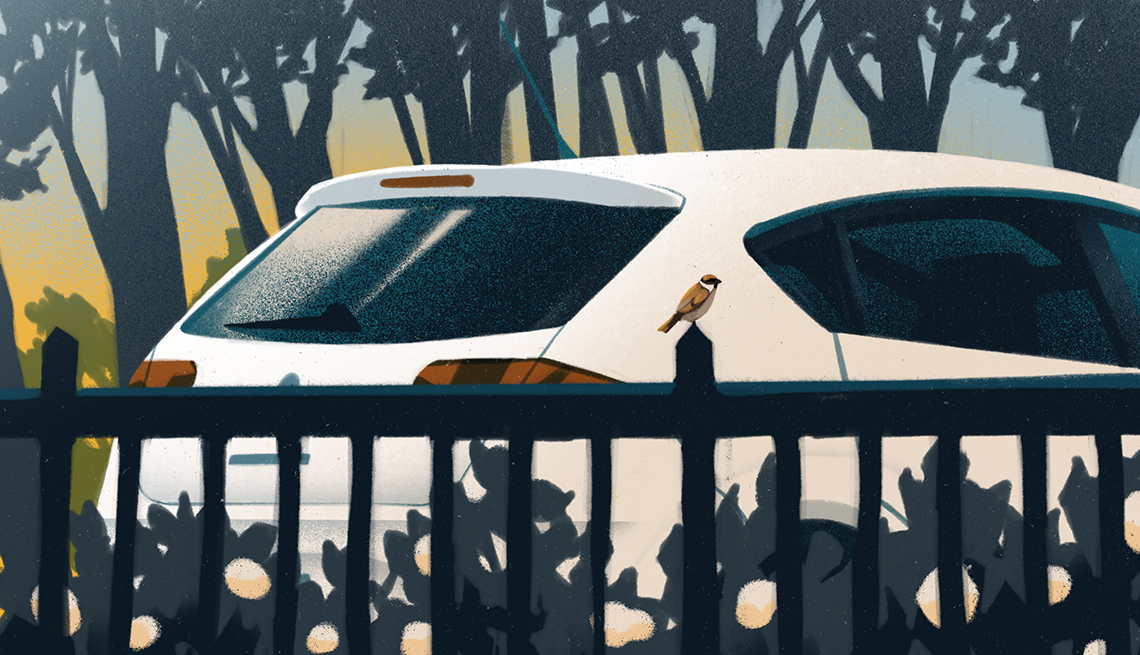



More From AARP
Free Books Online for Your Reading Pleasure
Gripping mysteries and other novels by popular authors available in their entirety for AARP members